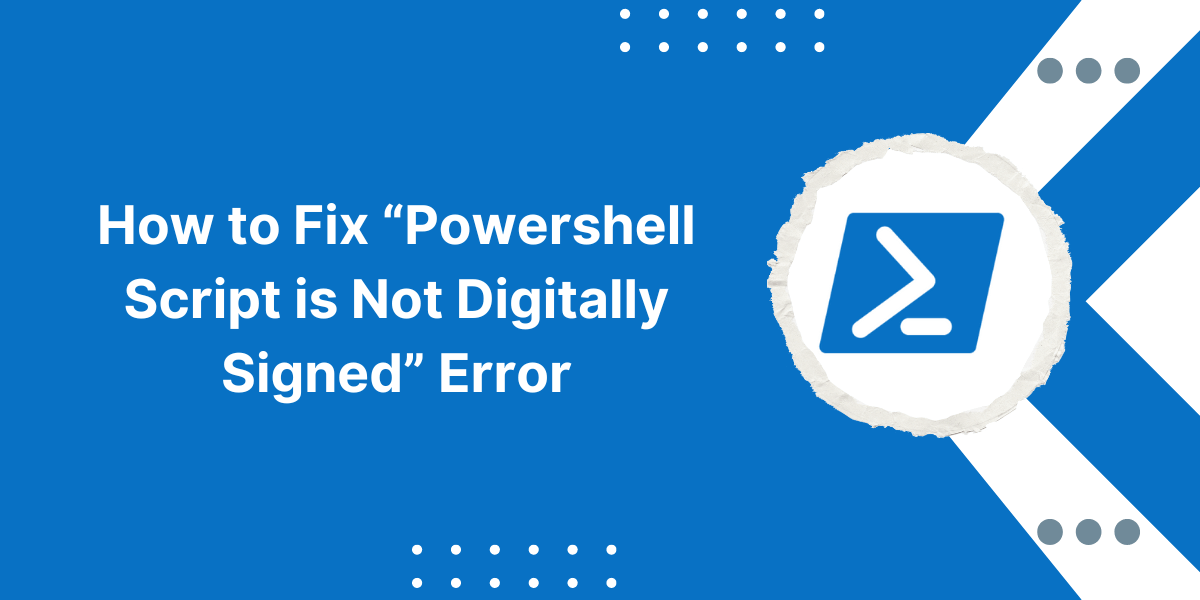Steps to Resolve “Powershell Script is Not Digitally Signed” Error
Learning how to fix the “Powershell script is not digitally signed” error message is an important skill for any Windows system administrator, developer or power user. This detailed guide will provide step-by-step instructions to troubleshoot and resolve this common Powershell issue.
